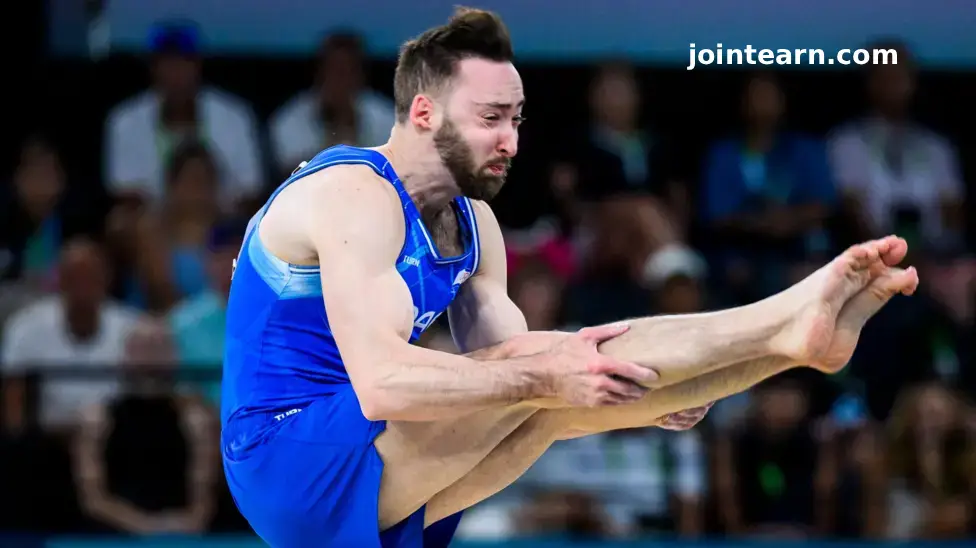
The International Olympic Committee (IOC) has reaffirmed that sport must remain a “safe space” for all athletes after confirming that no resolution was found to allow Israeli gymnasts to compete at the 2025 World Artistic Gymnastics Championships in Jakarta, Indonesia.
The controversy erupted after Indonesia denied visas to the Israeli team, citing the country’s stance against Israel’s military actions in Gaza. The decision has sparked global criticism, with the Israeli Gymnastics Federation (IGF) accusing both the Indonesian government and the International Gymnastics Federation (FIG) of setting a “dangerous precedent” in international sport.
IOC: Athletes Must Not Be Punished for Political Decisions
In a statement issued on Friday, the IOC expressed deep regret over the situation, saying it had attempted to facilitate dialogue between the FIG, Indonesia’s government, and the Indonesian Olympic Committee, but was unable to secure a solution before the championships begin on 19 October.
“Sport must remain a safe space for athletes to fulfil their dreams,” the IOC said. “Athletes must not be held responsible for political decisions.”
The IOC stressed that all eligible athletes, teams, and officials must be allowed to compete “without any form of discrimination from the host country,” as required by the Olympic Charter. It added that it is the “direct responsibility” of the host nation to uphold this principle.
The IOC executive board plans to discuss the matter at its next meeting, emphasizing that such incidents threaten the integrity of international sport and could have broader implications for Indonesia’s future as a host of global sporting events.
Israel’s Artem Dolgopyat Among Athletes Barred from Competing
Among the athletes affected is Artem Dolgopyat, the reigning world floor champion and one of Israel’s most decorated gymnasts. The 28-year-old, a two-time Olympic medalist and European champion, was expected to defend his world title in Jakarta.
The IGF said the decision not to grant visas violates the Olympic Charter and undermines the principle of fair competition. The federation’s appeal to the Court of Arbitration for Sport (CAS) to either guarantee Israeli participation or relocate the event was rejected earlier this week, leaving no pathway for Israeli athletes to compete.
Political Tensions Between Indonesia and Israel Deepen
Indonesia, the world’s most populous Muslim-majority nation, has no formal diplomatic ties with Israel and has maintained a long-standing policy of rejecting Israeli representation at events on its soil.
This is not the first instance of sports-related friction between the two nations. In 2023, Indonesia was stripped of its right to host FIFA’s Under-20 World Cup after Bali’s governor refused to accommodate the Israeli team. Similarly, during the 1962 Asian Games, Indonesia banned Israeli athletes, leading to its temporary exclusion from the 1964 Tokyo Olympics by the IOC.
Background: Gaza Conflict and Ongoing Humanitarian Crisis
The political backdrop to the current dispute stems from Israel’s ongoing military offensive in Gaza, launched after the Hamas-led attack on southern Israel on 7 October 2023, which killed 1,200 people and saw 251 hostages taken.
Since then, Gaza’s Hamas-run health ministry has reported more than 67,000 deaths, figures that have been corroborated by the United Nations and other international organizations. Over 90% of residential buildings in Gaza have been destroyed, and a recent UN commission of inquiry accused Israel of committing genocide, a claim the Israeli government strongly rejects.
A fragile ceasefire this week saw 20 Israeli hostages and hundreds of Palestinian detainees released in a negotiated exchange, marking a brief moment of relief amid the prolonged conflict.
What’s Next for the FIG and Indonesia
The International Gymnastics Federation has not announced any changes to the event schedule but faces mounting pressure to review its hosting criteria to prevent similar diplomatic impasses in the future.
The IOC’s firm stance signals that future bids from countries with political restrictions on participation could face closer scrutiny, especially as the global sports community calls for neutrality and inclusivity in international competitions.


Leave a Reply